
Happy Holidays!


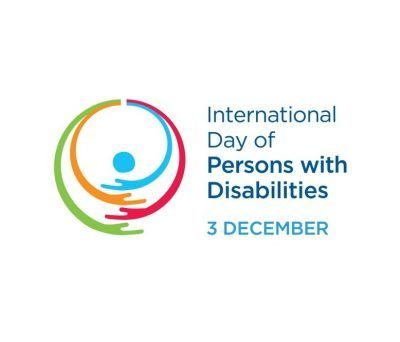
“I urge all countries to fully implement the Convention on the Rights of Persons with Disabilities, increase accessibility, and dismantle legal, social, economic and other barriers with the active involvement of persons with disabilities and their representative organizations.”
– António Guterres, Secretary General, United Nations
NIDMAR’s goal is to stop the Disability–Poverty cycle through effective Return to Work programs to ensure continued Employment for people with mental or physical health impairments.
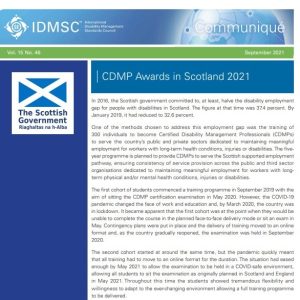
In 2016, the Scottish government committed to increase the employment opportunities for people with disabilities. One of the methods chosen to address the employment gap was the training of 300 individuals to become Certified Disability Management Professionals (CDMPs) to serve the country’s public and private sectors dedicated to maintaining meaningful employment for workers with long-term health conditions, injuries, or disabilities.
To read more on the success achieved to date, please click on the following link to the Communique.

We were so proud to celebrate, on Friday Oct 22, our 2021 Bachelor of Disability Management Program graduates with our online graduation celebration! Such an inspiring group of students! We would like to thank our valedictorian Ashley Anna O’Neill who shared her inspiring words with us. We would also like to thank our amazing speakers, Sari Sairanen, Dean Winsor, Susan Patrick, Trevor Alexander, and Wolfgang Zimmermann. Special thanks to MP Gord Johns for his support and contribution and of course our Chancellor, the Hon. Wayne G. Wouters, OC, PC for his graduation address.
Here is to the class of 2021!
Watch the graduation ceremony here:


SOCSO’s Regional RTW DIGIMOS Symposium 2021 took place September 6 and 7, 2021. It aimed to attract participants from diverse levels and professional backgrounds from Southeast Asian countries, and with the goal of helping to reinvigorate Malaysia’s labor industry by sharing information and best practices for recovering from the pandemic.
The theme of this year’s RTW DIGIMOS Symposium was “Navigating Disability Management through the New Normal: Return to Work Process-Re-Engineering”.
The IDMSC contributed a presentation highlighting the international standards as well as an initiative currently taking place in British Columbia, Canada under a government grant entitled “Building a Culture of Accommodation in the Workplace. This presentation is featured in the video and begins with introductions around the 42:00 minute mark.
The full video can be seen at:
https://fb.watch/7Tj1ubttAp
Learn More:
https://www.perkeso.gov.my/en/digimos-symposiom-2021.html
https://digimosrtw2021.perkeso.gov.my/
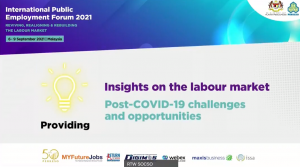
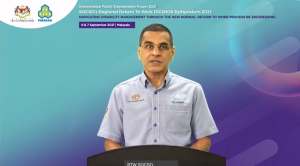
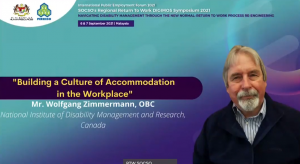
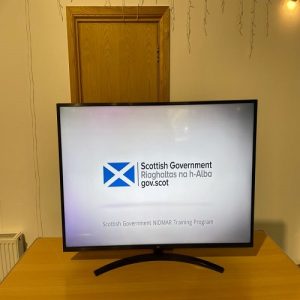
An event took place during the last week of August in Scotland to present the certificates to the individuals who passed the CDMP professional certification examinations that took place at the end of May 2021. Dr. Norma Clark, Project Manager for the Scottish Government attended along with Graham Halsey who acted as MC for the event.
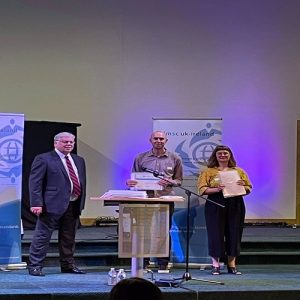

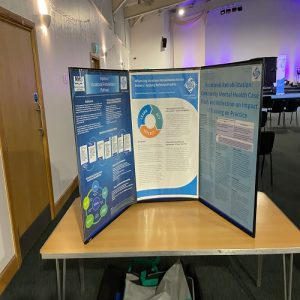
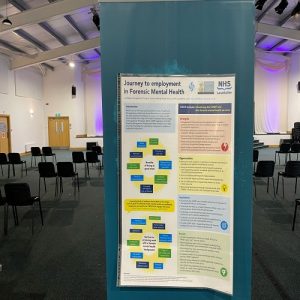



To empower faculty and staff to listen without judgment and start conversations about suicide, BCcampus has launched Let’s Talk about Suicide: Raising Awareness and Supporting Students, a digital anti-stigma resource. Continue reading September 10 – World Suicide Prevention Day
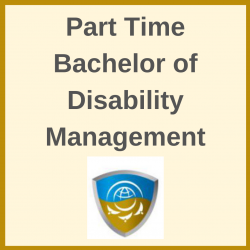
The Bachelor of Disability Management Program is now available as a part-time program. This will allow individuals who are not able to participate in the full-time program, to still enroll in and complete the Bachelors program.
See full details at: Bachelor of Disability Management (BDM) – Pacific Coast University (pcu-whs.ca)
Or contact Student Services at: [email protected]

Free access to Continuing Education courses in Disability Management and Return to Work is being offered through the Pacific Coast University for Workplace Health Sciences (PCU-WHS) Continue reading BC Workplaces Supported with DM and RTW Continuing Education
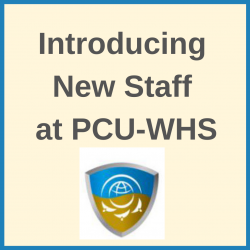
PCU-WHS is pleased to announce the appointment of two new staff members: Susan Patrick, PhD, as Director of Academic Program Development and Delivery; and Khusbuben Thakor (KD), MBA, MGM, as Associate Director of Admissions, Student Services and Alumni Relations.
With the roll-out of the grant from the British Columbia government to NIDMAR, this has translated into newly available educational opportunities for both scholarships and continuing education in Disability Management to BC residents and workplaces.
Below please find the links to bulletins announcing the appointments of Susan and KD as both look forward to welcoming these new opportunities for new students in the rapidly expanding field of Disability Management, supported in part through the United Nations Convention on the Rights of Persons with Disabilities and federal and provincial Accessibility Legislation in Canada.
PCU-WHS Newsletter Vol 8 Issue 31 May 2021 Announcement re Appointment of Susan Patrick
PCU-WHS Newsletter Vol 8 Issue 32 May 2021 Announcement re Appointment of Khusbuben Thakor

A Special Virtual Event on Thursday, May 20, 2021 addressed the Consequences of Long COVID. The recorded session is now available to replay on demand. This one-hour webinar was hosted by the organizers of IFDM 2021. Continue reading Special Virtual Event: The Consequences of Long COVID
New accessibility legislation will set British Columbia on the path to a more accessible and inclusive province for people with disabilities and their support networks.
If passed, the accessible British Columbia act will allow government to establish accessibility standards aimed at identifying, removing and preventing barriers to accessibility and inclusion. Standards will be developed in a range of areas such as employment, the delivery of services and the built environment.
“We’re committed to improving the lives of people living with disabilities, and today’s introduction of the accessible British Columbia act marks an important step in building an accessible province that works for all of us,” said Nicholas Simons, Minister of Social Development and Poverty Reduction. “To be a truly inclusive province, we must integrate accessibility into all aspects of our lives. This legislation will support the development of new accessibility standards, which will help ensure all British Columbians can participate more fully in their communities.”
To view the News Release made by the BC Government about the proposed accessible British Columbia act, please click on the following link: More Information
In a separate release, the Province announced that it is providing NIDMAR a $6 million one-time grant to administer a RTW and DM education and program support project over the next four years.
The project includes three strategies to support BC employers to accommodate injured workers to return to work as well as increase the number of people with disabilities in the provincial workforce through:
• Disabilty management program assessments and improvements
• Educational development
• Professionalization
Dan Coulter, Parliamentary Secretary for Accessibility said, “Every worker has the right to return home safely from work. As someone who has endured a serious workplace injury myself, I know first-hand how difficult it can be to return to the workplace. This funding will help more people successfully transition back into the workforce.”
Wolfgang Zimmermann, Executive Director of NIDMAR said, “We very much appreciate the support of the Province to enable us to provide employers in BC with education, professional certification and implement a Return to Work/Disability Management program so they can assist workers who acquire a mental or physical health impairment to maintain attachment to their workforce. Over 80% of impairments occur during a person’s work life, and spending a year on disability support, less than 1% will work again. Workplace efforts in early intervention and return to work play a key role in successful socio-economic outcomes for the injured/disabled worker.”
Lance Blanco, Senior Vice-President of Corporate Development Hardwoods Distribution Inc. said, “This is a tremendous opportunity. Employers in collaboration with their employees, can effect meaningful change through personal leadership and by introducing organizational policies and practices that focus on retaining valuable workers they might otherwise lose to the onset of a mental or physical health impairment. Everyone benefits when we build a culture of accommodation that recognizes the important contributions we can all make.”
Sussanne Skidmore, Secretary Treasurer, BC Federation of Labour said, “We are encouraged by this practical investment that will help injured workers to return to work. While there is much work to do to improve accessibility and supports for injured workers, employers will now have access to training and skills development to ensure they properly support their workers.”
The Honourable Minister of Labour, Harry Bains said, “Ensuring that workers who become injured or disabled have the supports they need to be able to return to work is vital to a healthy and just workforce. This grant will go a long way to improve and expand BC’s disability management and return-to-work resources and provide workers and employers with more of the supports they need.”
For further details regarding this grant, please contact NIDMAR by email at: [email protected]
To be notified of future education opportunities from PCU-WHS please register at: [email protected]
To view the News Release made by the BC Government Ministry of Social Development and Poverty Reduction, please click on the following link: More Information
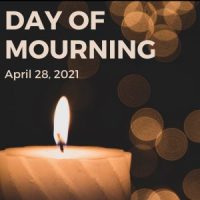
The national Day of Mourning is observed annually on April 28 to remember those workers who have lost their lives or been affected by workplace disabilities or disease. Together, we also use this day to acknowledge and show support for the countless families and friends whose lives have been impacted by these workplace tragedies. The International Labour Organization (ILO) reports that 2.3 million workers die annually from occupational accidents around the world, which relates to 6,000 workplace deaths per day. A further 500 million workers each year are injured in occupational accidents or are victims of work-related illnesses.
In Canada, 30 years have now passed since the official Day of Mourning was first established on April 28, 1991. Despite three decades of increased awareness, the latest statistics tell a sobering story; workplaces in Canada are not getting any safer. Data from the Association of Worker’s Compensation Boards (AWCBC) shows that the number of Canadian workplace fatalities remains consistent – with close to 1,000 workers being killed at work each year. The Day of Mourning on April 28, 2021 serves as a reminder that we must strengthen our resolve to create safer and healthier workplaces to reduce these preventable deaths in future.
As we pay our respects and honour those who were killed in their line of work, we must also consider those who have suffered illness and injury – many of whom are now facing an uncertain future plagued by ongoing health issues and employment challenges. For every industrial fatality, we can expect about 25 permanent long-term mental or physical health impairments, with these individuals and their families often enduring years of financial hardship and accessibility barriers in addition to the burden of managing their health concerns.
Over the past year, the global pandemic has taken an extreme toll on workplace health and safety. Employers were required to quickly re-imagine their operations to try and protect their workers, but tragically, cases of COVID-19 spreading through worksites were reported across the country; with workers exposed to health risks when supporting essential goods and services and others not speaking out through fear of losing their jobs. The long-term symptoms of contracting COVID-19 continue to impact those who are reported as recovering from the virus, and this has not been the only risk associated with the pandemic; improperly adapted work environments and the extreme mental health impacts of isolation, worry and disruption have also added countless additional instances of illness and injuries to our workforce over the past year. These cases are expected to increase with the pandemic continuing to impact our lives well into the future.
Recent studies show that workers who are dealing with injury and illness, including those resulting from workplace incidents, become extremely vulnerable to losing their jobs and subsequently facing extraordinary barriers to re-entering the workplace. Persons with disabilities continue to experience a disproportionately higher than average level of poverty with data showing that both public and private employers do not consistently hire and retain workers who acquire a mental or physical health impairment.
We must use the Day of Mourning to remember those who tragically lost their lives, to re-commit to establishing safe and healthy work environments, and to demand proper support and workplace accommodations for the increasing number of individuals dealing with illness or injury.
Sources:

The Pacific Coast University for Workplace Health Sciences (PCU-WHS) is pleased to announce the appointment to its Board of Governors of Lorraine Evans, Director of Human Resources for Canada Post. Lorraine is an experienced Human Resources Director with a passion for inclusion and acceptance in the workplace. In February 2021, Lorraine was also appointed to the Board of Directors of the National Institute of Disability Management and Research (NIDMAR); however her relationship with NIDMAR began many years earlier. Please click on the following link to review the full announcement:
PCU-WHS Newsletter Vol 8 Issue 30 March 2021 New Appointment to Board of Governors
The impact of the COVID-19 pandemic across Canada and around the world has created unprecedented challenges for individuals, organizations and societies. It has disrupted professional and personal lives of many individuals, often creating economic hardship while in untold cases challenging individuals’ ability to successfully cope. COVID-19 has exacerbated what had already become a rapidly increasing wave of mental health challenges and impairments arising from a myriad number of factors including, but not limited to, dramatic expansion of the ‘gig’ economy, reorganization of workplace structures, and the need to accommodate many personal challenges such as the “sandwich generation” who are trying to adjust.
PCU-WHS, through its various education, research and professional development initiatives has tried to be at the forefront of supporting individuals and workplaces with the development of innovative strategies, policies and practices designed to facilitate more effective accommodations for individuals struggling with mental health impairments, which are often combined with physical health challenges and demanding personal circumstances.
In order to maintain a leading edge, innovation, thought-leadership and best practice agenda, the University has been most fortunate and is grateful for the committed dedication and support of many individuals across Canada and around the world who share its vision of much improved workplace health outcomes, both on the primary prevention level, but also on the return to work side following onset of a disabling mental or physical health impairment.
With this in mind, we are very pleased that the following individuals agreed to join our newly established Academic Workplace Health Advisory Board: